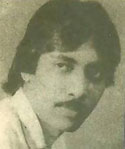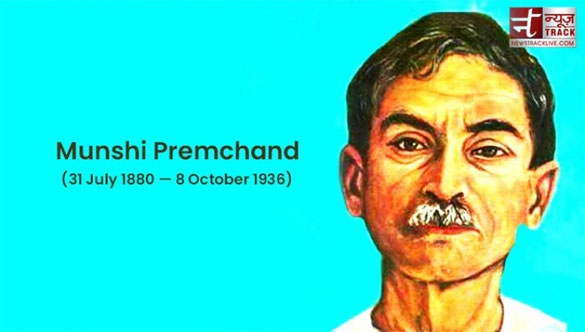
By S. Arshad, New Age Islam
2 August 2021
Premchand's Greatness Lies In His Universal and Timeless Appeal
Main Points:
1. He wrote both in Hindi and Urdu.
2. He wrote about the life of the poor and the downtrodden.
3. His fiction is not only the means of entertainment but also song of protest
4. He advocated widow remarriage in his fiction.
----

(A tribute on Premchand's birth anniversary)
Munshi Premchand was one of the greatest literary personalities of India in the 20th century. He wrote more than 300 short stories and novels in both Urdu and Hindi and contributed to the social and political awareness among Indians during the British rule.
Munshi Premchand started his literary career in 1907 with his short story "Dunya Ka Sabse Anmol Ratan"(the most precious gem of the world). The story had patriotic undertone as the writer symbolically conveyed the message to the reader that a drop of blood shed for the motherland was the most precious jewel.
His first collection of short stories Soz-e-Watan was published in 1909. The collection was seized by the British government because of its anti-imperilialist content. The government imposed censorship on his writings. He was told to present his stories for scrutiny before publication. Premchand felt gagged and left the government job to avoid government pressure. After that he started writing with a greater zeal.
The short story in Premchand's age was generally based on feudal topics and revolved round love and romance. Munshi Premchand started writing short stories on social issues of the middle class and poor sections of India. He depicted the lives and plight of the farmers under the oppression of the feudal system and the oppressive policies of the British government. He wrote stories and novels with the purpose of reform and bringing change. Protest was the undercurrent of his creative stream.
Not only did he depict the life of the farmers but also of the plight of women, particularly of the widows and young widows. In his stories and novels he advocated the remarriage of widows. The evil of dowry, bribery in the police and the bureaucracy, tyranny of Zamindars are some of other themes of his stories. Gowdan, Chowgan-e-Hasti, Nirmala, Ghaban are some of his path-breaking novels that paved the way for progressive literature in India. He was the pioneer of progressive movement in literature long before the progressive movement was institutionalised in the sub-continent. The first conference of the Progressive writers Association was held under his Presidentship and under the guidance of Sajjad Zaheer.
Premchand wrote both in Hindi and Urdu and produced many short stories in Hindi and Urdu. He is regarded as the greatest fiction writer by the critics of both the languages. Renowned critic of Urdu Prof Aal Ahmad Suroor wrote:
"Various revolutions of the 20th century and the influence of Premchand brought new trends in fiction writing. The new fiction writing did not remain mere a means of entertainment, rather it became a song of protest."
Salahuddin Ahmad, the editor of the magazine Adabi Dunya wrote:
"Premchand was not influenced by outer factors. The atmosphere of his novels and his characters are out and out Indians. Premchand emerged with a universal attitude and he observed life from many angles. Although he had turned a little reformist and this trend is reflected more in his later day novels and though sometimes he wrought his stories around some social evil with the purpose of reform and his style was in harmony with the social and economic system and values of the age before the War but it is also a fact that he also laid the foundation of psychological fiction and he was the first to realise the importance of construction of the characters in the story."
The realistic and progressive fiction produced by Premchand led the fiction of that era out of Tagorean influence and a whole lot of fiction writers of his era and of later generations like Ahmad Nadeem Qasmi, Manto, Upendra Nath Ashk, Bedi, Ismat Chughtai, Krishan Chander, Ali Abbas Hussaini etc were influenced by Premchand.
This is the greatness of Premchand that even 85 years after his demise, he continues to influence and inspire generations of Urdu and Hindi fiction writers.
-----
S. Arshad is a columnist with NewAgeIslam.com.
URL: https://www.newageislam.com/current-affairs/premchand-hindi-urdu/d/125163
New Age Islam, Islam Online, Islamic Website, African Muslim News, Arab World News, South Asia News, Indian Muslim News, World Muslim News, Women in Islam, Islamic Feminism, Arab Women, Women In Arab, Islamophobia in America, Muslim Women in West, Islam Women and Feminism

No comments:
Post a Comment